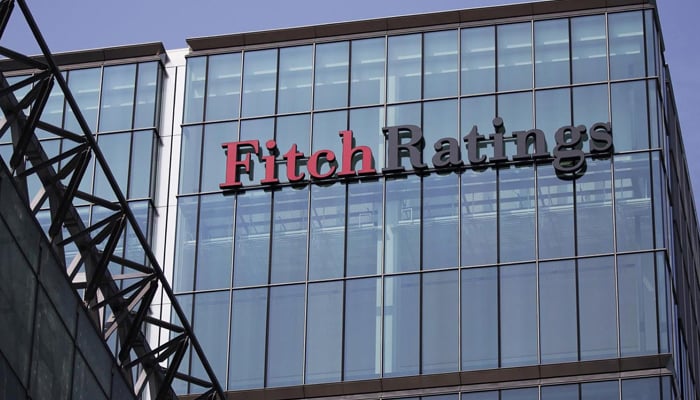Fitch maintains Pakistan’s rating at 'CCC', sees political volatility
With IMF board to meet on Jan 11 to discuss Pakistan’s loan approval, Fitch says it expects process will be “unproblematic”
Fitch Ratings Wednesday affirmed Pakistan's Long-Term Foreign-Currency Issuer Default Rating (IDR) at 'CCC', but also warned of political volatility after the February 8, 2024, general elections take place.
In a statement, the rating company also said that it expects Pakistani authorities to complete the ongoing standby programme with the International Monetary Fund (IMF) — a crucial deal that kept the South Asian nation from defaulting on its sovereign debt.
However, an expert voiced concerns over the fresh rating, noting that he expected the company to improve Pakistan’s rating due to the slew of reforms that the caretaker government undertook to meet IMF’s requirements.
“One could have expected an improvement in the Fitch country rating for Pakistan after not only having joined a standby arrangement with the IMF but also completing the first review,” former adviser of the finance ministry Dr Khaqan Hassan Najeeb told Thenews.com.pk.
However, he added that the uncertainties on the external front as well as the holding of the elections and any possible slippages on the fiscal side have kept Pakistan’s rating at ‘CCC’ as before.
In the statement, Fitch said the 'CCC' rating reflects high external funding risks amid high medium-term financing requirements, despite some stabilisation and Pakistan's strong performance on its current arrangement with the IMF.
The company said it expects elections to take place as scheduled in February and a follow-up IMF programme to be negotiated quickly after the current agreement finishes in March 2024,
“But there is still the risk of delays and uncertainty around Pakistan's ability to do this. The elections could endanger the durability of recent reforms and leave room for renewed political volatility,” the ratings company warned.
With the IMF board to meet on January 11 to discuss Pakistan’s loan approval, Fitch said it is expected that the process will be “unproblematic”.
“The successful programme review reflects continued fiscal consolidation, energy price reforms in the face of a public backlash, and moves towards a more market-determined exchange rate regime,” it said.
Fitch expects it to go smoothly as the interim government has sharply hiked natural gas and electricity prices, cracked down on the black market, helped narrow the gap between the parallel (kerb) and interbank exchange rates, and brought more FX into the banking system.
In June, the previous government amended its proposed FY24 budget to introduce new revenue measures and cut spending, following additional tax measures and subsidy reforms in February.
Najeeb also said that the good part is that Fitch said Pakistan's reserves have recorded inflows of new funding and Pakistan, due to its limiting of the fiscal deficit, lower international prices, and limited ability to avail FX have resulted in Pakistan's CAD to shrink from the high $17 billion last year to nearly 1-1.5% estimated in FY24.
The company also noted that parties across the political spectrum in Pakistan have an extensive record of failing to implement or reversing reforms agreed with the IMF.
“We see a risk that the current consensus within Pakistan on the measures necessary to ensure continued funding could dissipate quickly once economic and external conditions improve, although Pakistan now has fewer financing options than in the past.”
“Any follow-up IMF programme would likely require Pakistan to undertake sweeping structural reforms in opposition to entrenched vested interests,” it added.
Najeeb added that the key message is to stay on “the IMF path, prepare for a new programme, but much more structural reforms in the areas of energy deregulation, investment and domestic revenue mobilisation would be required to consolidate the early signs of stability into more sustainable growth”.
-
US lawmakers introduces new bill to define crypto market rules
-
Apple tops global smartphone market in 2025, says report
-
AI boom set to lift TSMC’s Q4 profit by 27%
-
An eye on 'global economic instability' as shares slumps, tensions intensify
-
Tesla dethroned: BYD shocks EV market as top seller in 2025
-
China sets up $8.9B fund to boost 2026 consumer goods trade-in
-
Meta to acquire Chinese AI startup Manus to expand advanced AI capabilities
-
China to roll out action plan for digital yuan expansion












